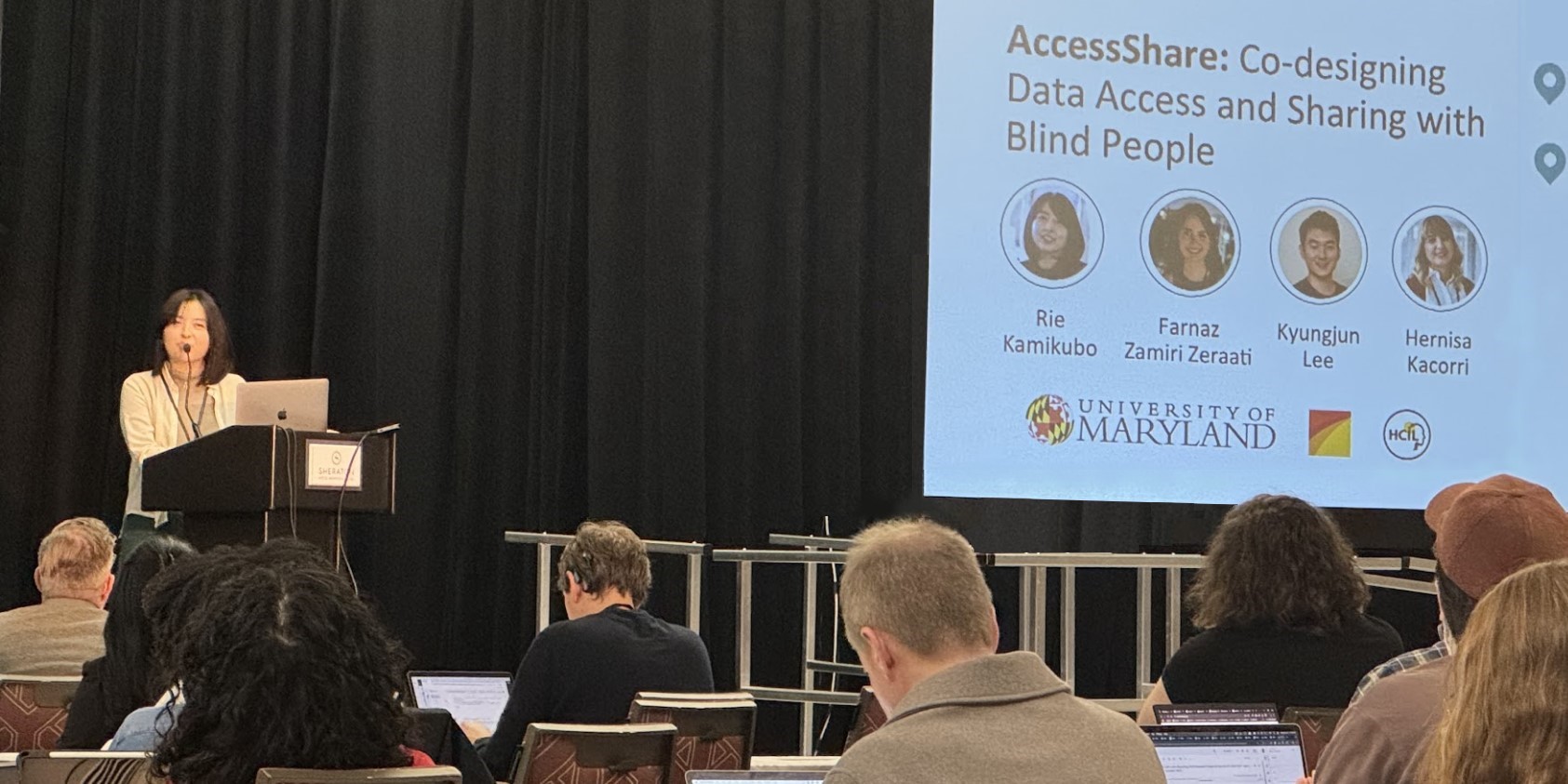News
Co-designing Data Access and Sharing with Blind People

The insights gained from this study can guide AI developers to integrate informed consent and inclusive data practices into their work.
UMD researchers Rie Kamikubo, Farnaz Zamiri Zeraati, Kyungjun Lee, and Hernisa Kacorri had the opportunity to present their research on data access and sharing with blind people at the 2024 ASSETS conference (an accessibility and computing conference).
“Blind people are often called to contribute image data to datasets for AI innovation with the hope for future accessibility and inclusion. Yet, the visual inspection of the contributed images is inaccessible. To this day, we lack mechanisms for data inspection and control that are accessible to the blind community” (Kacorri et. al, 2024).
In their study, the authors engaged blind participants in a real-world data collection process, from collecting image data in their homes using an AI-infused application to sharing them via a public AI dataset. Within this process, the authors engineered a novel data access interface called AccessShare and conducted a co-design study (co-design is a technique that involves including users as designers) to discuss participants’ needs and preferences for consent, data inspection, and control.
Read the full paper for free: AccessShare: Co-designing Data Access and Sharing with Blind People (2024).
